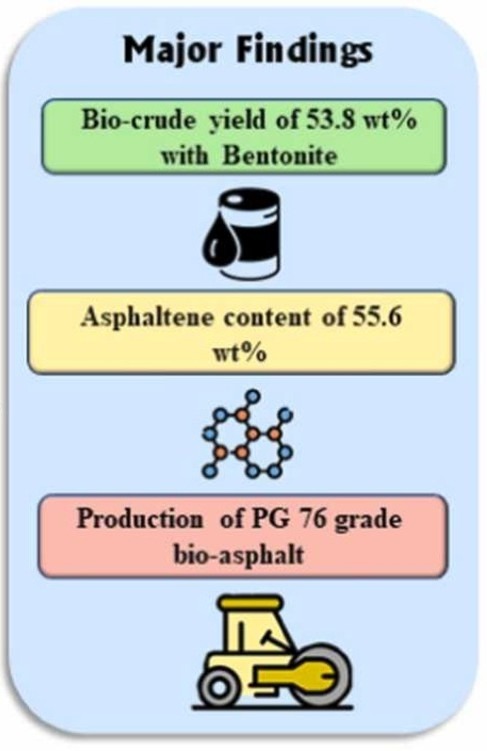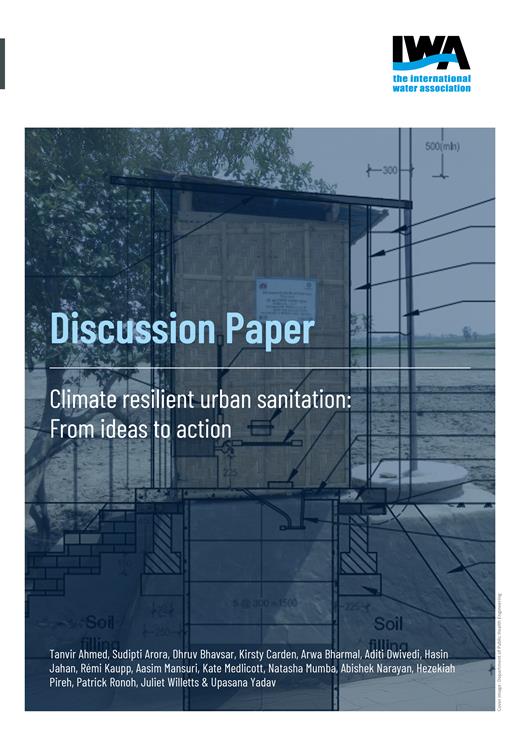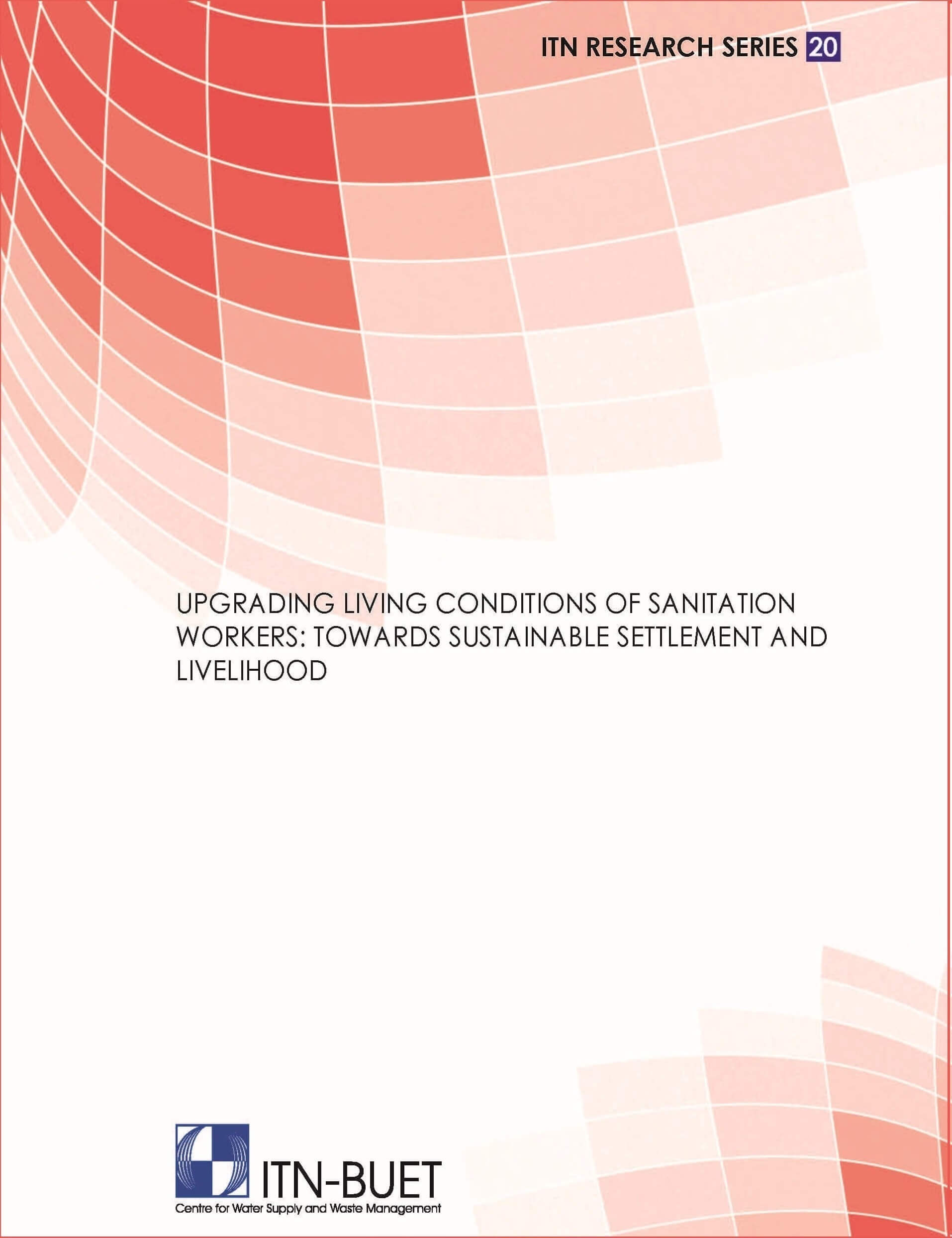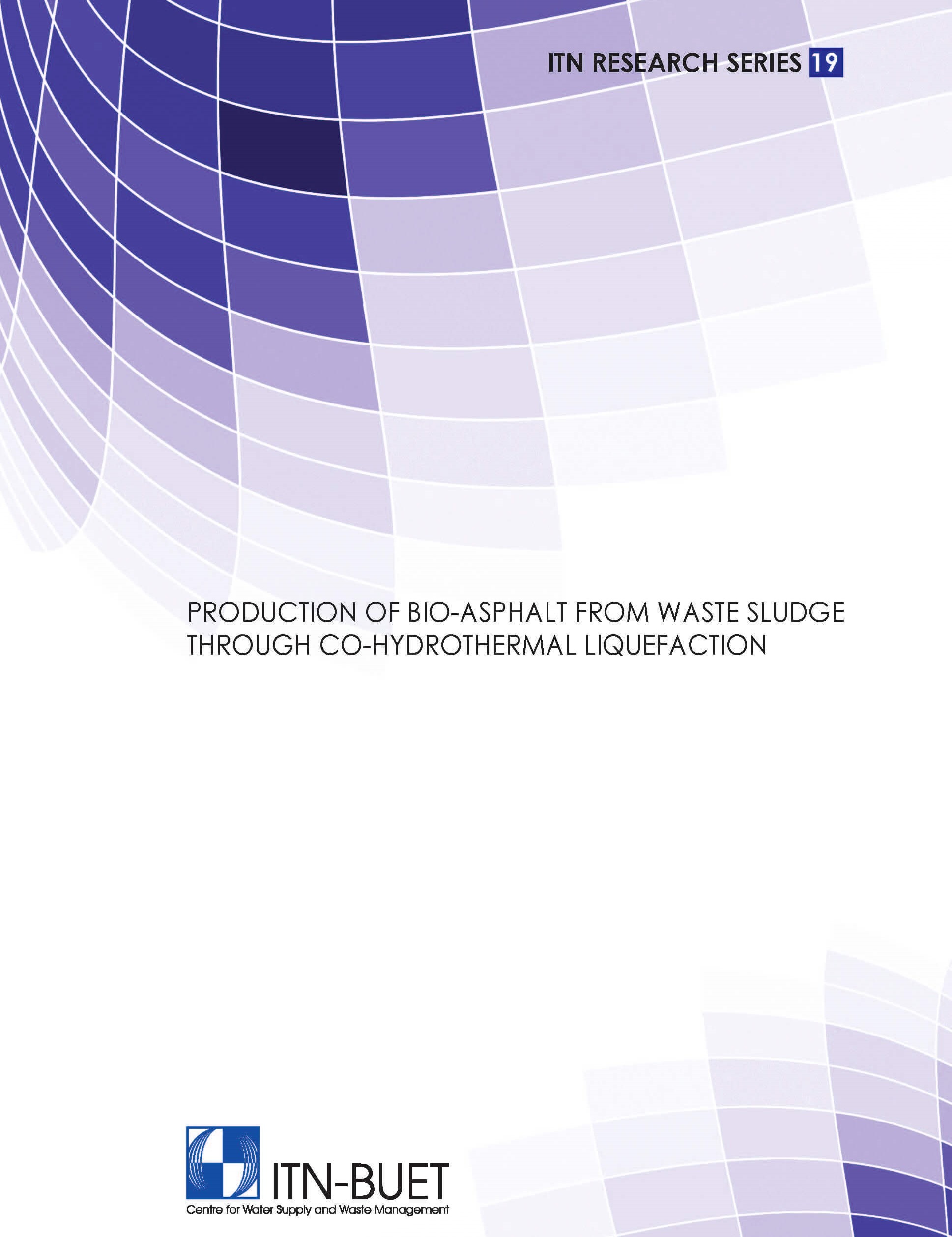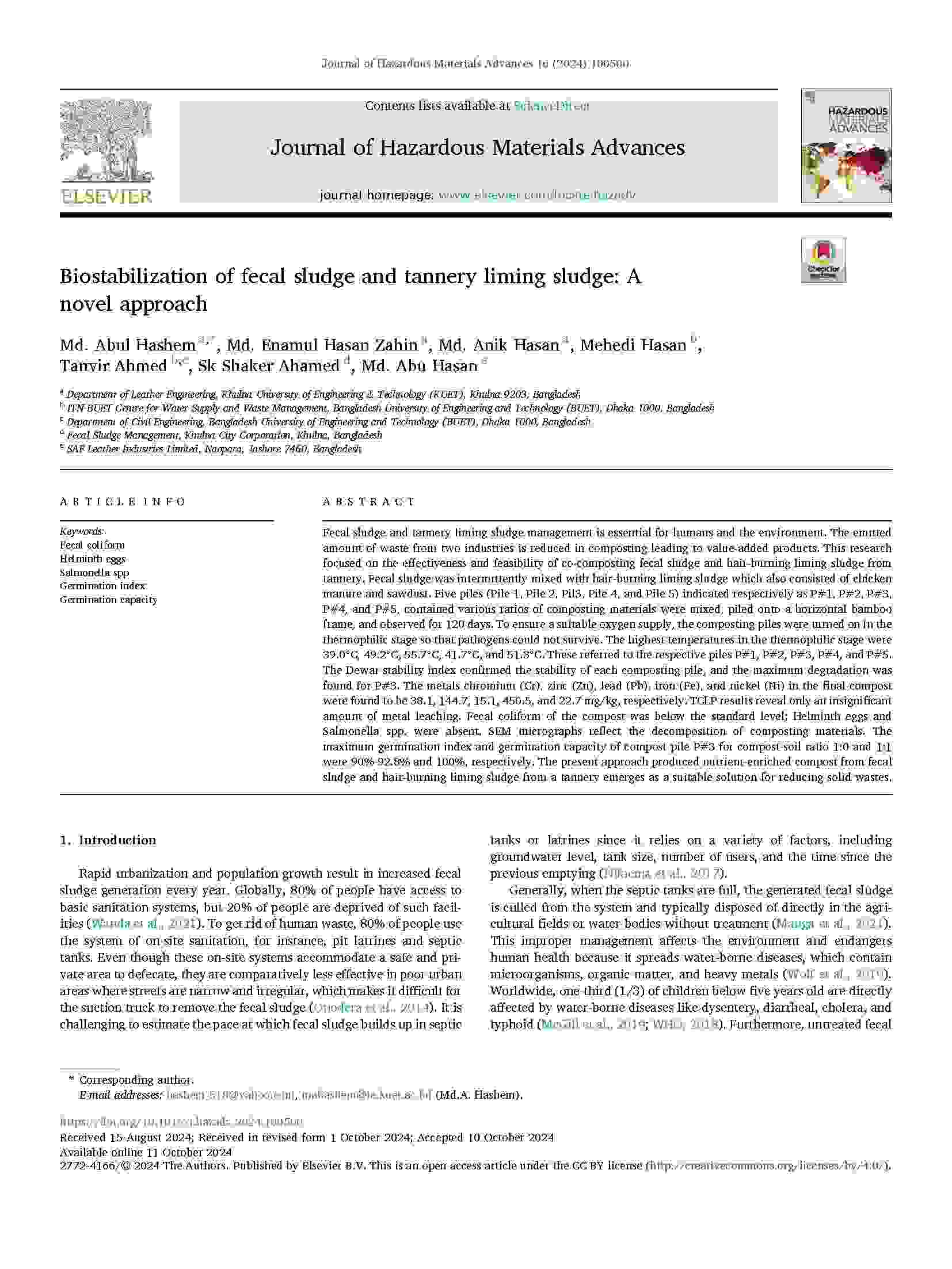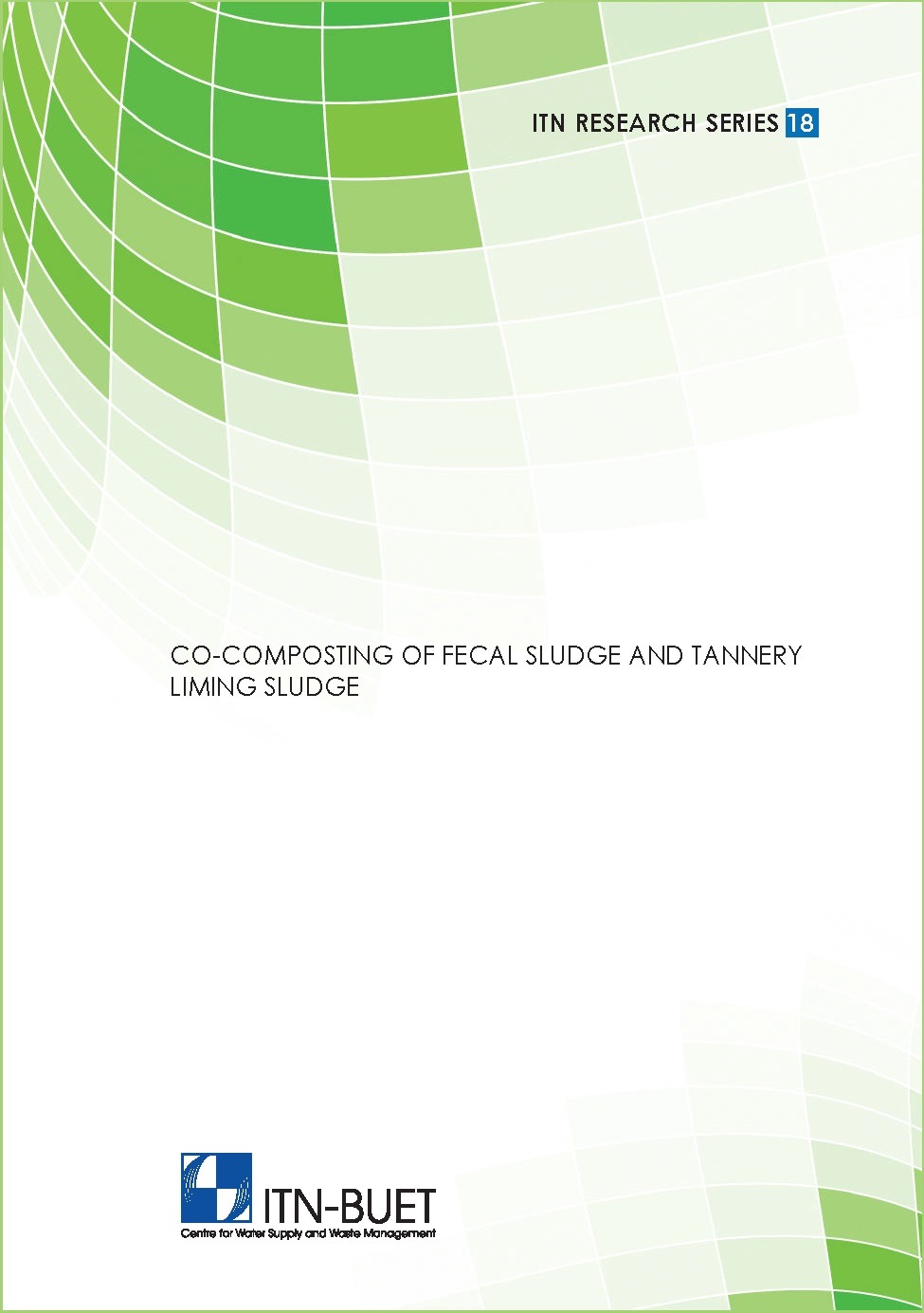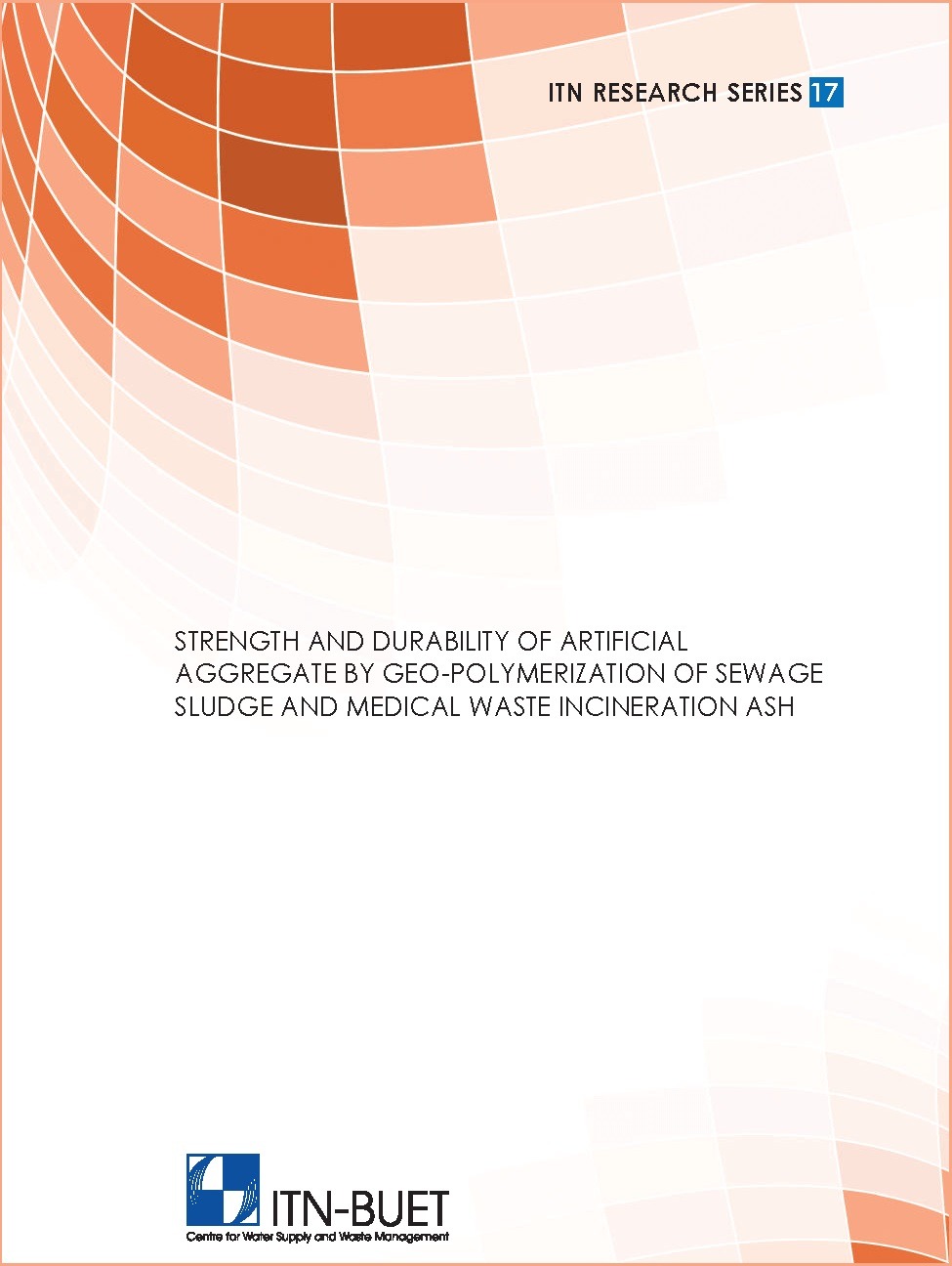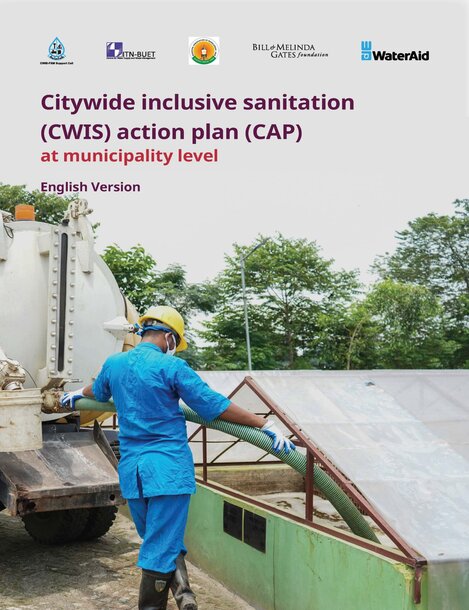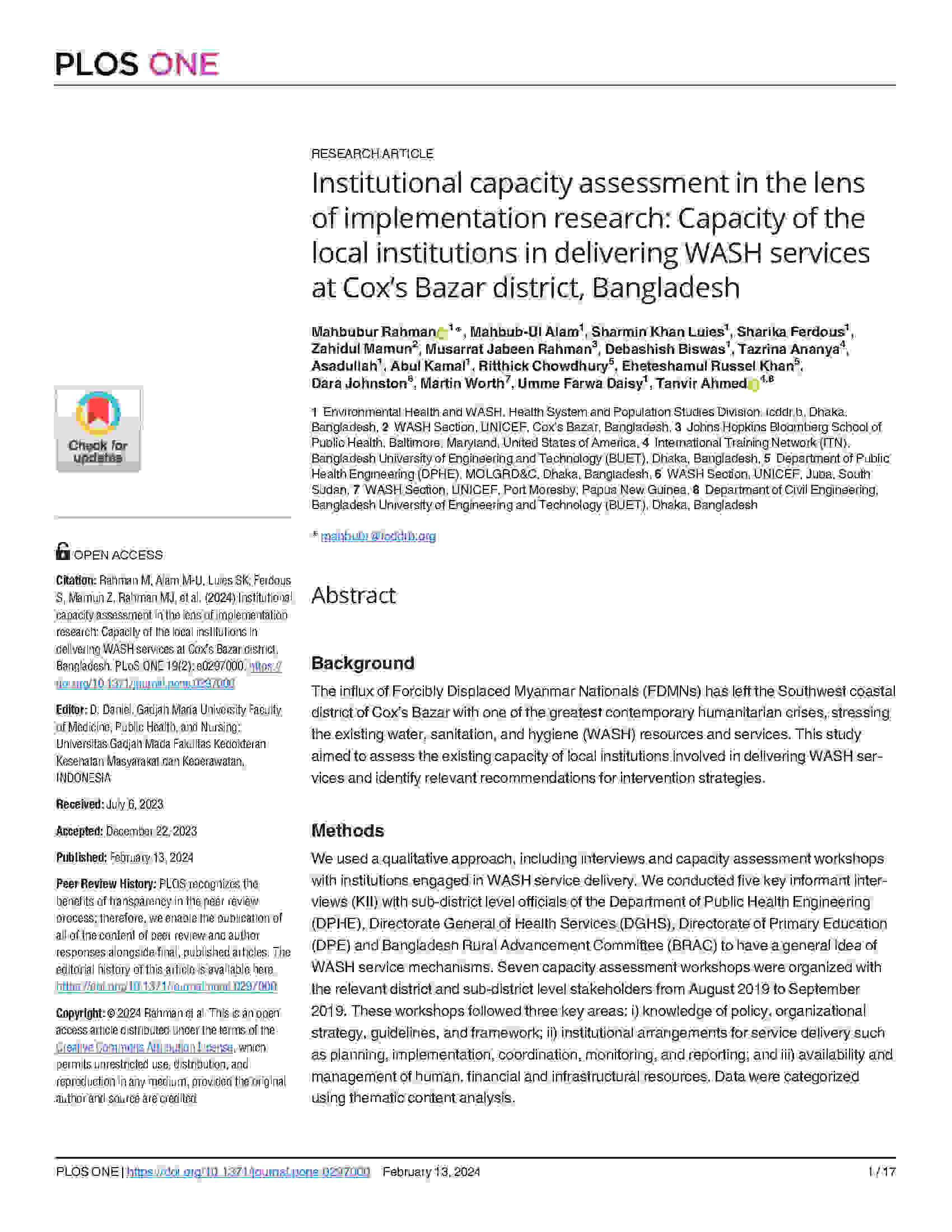Publications
Find journal articles, external publications, and ITN-BUET’s own portfolio of reports and briefs.
Production of performance grade bio-asphalt from fecal sludge using natural clay catalysts through hydrothermal liquefaction
The study reveals that bentonite clay is a highly effective catalyst for producing asphaltene-rich bio-crude using HTL, offering an economical and environment-friendly substitute for petrocrude and petro-based asphalt towards a green energy production pathway.
April, 2025
Discussion Paper: Climate resilient urban sanitation: From ideas to action
The purpose of this discussion paper is to build momentum and to move from ideas to action on climate-resilient sanitation.
January, 2025
Upgrading Living Conditions of Sanitation Workers: Towards Sustainable Settlement and Livelihood
This study proposes an innovative approach to improve the living standards of sanitation workers in a way that respects their socio-cultural identity while addressing both immediate needs and long-term sustainability goals.
Researcher(s): Anirban Mostafa
November, 2024
Production of bio-asphalt from waste sludge through co-hydrothermal liquefaction
This study proposes an innovative approach to utilizing fecal sludge for the production of bio-asphalt through Hydrothermal Liquefaction (HTL). It explores how waste materials, combined with natural clay catalysts, can be converted into bio-asphalt.
Researcher(s): Prof. Dr. Md. Khalekuzzaman
October, 2024
Biostabilization of fecal sludge and tannery liming sludge: A novel approach
This research focused on the effectiveness and feasibility of co-composting fecal sludge and hair-burning liming sludge from tannery.
November, 2024
Co-composting of fecal sludge and tannery liming sludge
This study focuses on sludge treatment as well as end-use potential to prevent pollution, protect public health, and ensure a circular economy. Researchers explore the potential of Co-composting as a low-cost, green technology for fecal sludge management.
Researcher(s): Md. Abul Hashem
September, 2024
Strength and durability of artificial aggregate by geo-polymerization of sewage sludge and medical waste incineration ash
This research provides insights into the environmental compatibility and optimal ratio of a fecal sludge-liming sludge mixture for composting, comparing the properties of the final compost with those of industrial-grade fertilizers.
Researcher(s): Mohammed Russedul Islam
August, 2024
Citywide Inclusive Sanitation (CWIS) Action Plan (CAP)
The CWIS Action Plan (CAP) uses the ABCD-IME approach, focusing on awareness, planning, and implementation while ensuring responsibility, accountability, and resource management for effective sanitation services.
August, 2024
Bioenergy-producing two-stage septic tank and floating wetland for onsite wastewater treatment: Circuit connection and external aeration
This study demonstrates the potential application of the novel bioenergy-producing septic tank-floating wetland system for wastewater treatment in decentralized areas.
May, 2024
Institutional capacity assessment in the lens of implementation research: Capacity of the local institutions in delivering WASH services at Cox’s Bazar district, Bangladesh
This study aimed to assess the existing capacity of local institutions involved in delivering WASH services and identify relevant recommendations for intervention strategies.
February, 2024


